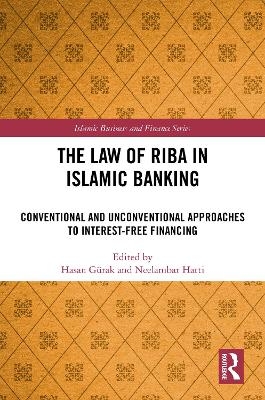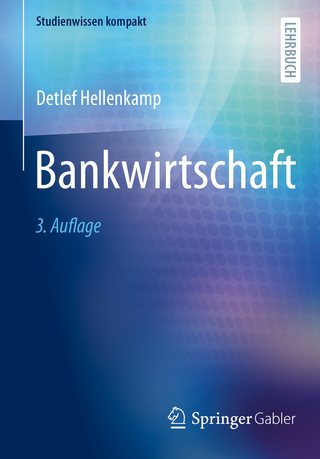
The Law of Riba in Islamic Banking
Routledge (Verlag)
978-1-032-63151-6 (ISBN)
The issue of riba, that is, interest/the "excess" or "surplus" on loans is crucial for both Islamic and non-Islamic countries. Western economic systems use interest to distribute financial resources efficiently for investment and/or consumption, while Islamic economies pursue a completely different strategy for financing loans, which adheres to Islamic laws and prohibits the activities of conventional banking systems with regard to interest. This book argues that there is scope for new definitions and analysis based on alternative concepts which respect Islamic values and principles, yet pave the way for modification and debate.
The book comprises of two parts. Theoretical issues are dealt with in the first section. The first two chapters examine conventional Islamic views on the prohibition of riba, while Chapters 3 and 4 contain unprecedented and alternative theoretical analysis based on concepts such as "earned" (halal-permitted-legal) vs. "unearned" (haram-impermissible-illegal) income and SUKUK, that is, Islamic interest-free bonds. The second part of the book tackles another unconventional aspect of Islamic finance, that is, the concept of NAS. The book considers whether the NAS-influenced anti-inflationary interest policy was a success or failure. Empirical data is evaluated in terms of bank incomes, inflation rate, interest rate, and the distribution of income.
This book will be a useful guide for students, scholars, and researchers of Islamic banking and finance.
Hasan Gürak is a Senior Researcher at the School of Economics and Management, University of Lund, Sweden. Neelambar Hatti is Professor Emeritus in the Department of Economic History, School of Economics and Management, University of Lund, Sweden.
Introduction Part I: Theoretical Chapters on Riba, the ‘Excess’ 1. Why Does Islamic Finance Reject Interest? 2. The Prohibition of 'Riba’ in Islam and Its Elimination through Islamic Financing 3. Is There a 'Divine' Definition of Riba and Its Scope in the Holy Quran? 4. Islamic 'Interest-Free' Bonds: How Islamic Are They? Part II: President Erdogan's patented 'NAS'-policy and its consequences 5. The NAS Is There! President Erdogan’s Economic Instrument to Fight Inflation 6. The Effects of the New Economic Model on Banking Sector Profitability in Turkey 7. Empirical Evaluation of President Erdogan's Interest Rate Policy 8. An Analysis of the Relationship between Foreign Exchange Rate Protected Deposit Implementation and Exchange Rates 9. Women's Wage in the Turkish Labor Market
| Erscheinungsdatum | 14.03.2024 |
|---|---|
| Reihe/Serie | Islamic Business and Finance Series |
| Zusatzinfo | 28 Tables, black and white; 34 Line drawings, black and white; 34 Illustrations, black and white |
| Verlagsort | London |
| Sprache | englisch |
| Maße | 156 x 234 mm |
| Gewicht | 600 g |
| Themenwelt | Sozialwissenschaften ► Soziologie ► Spezielle Soziologien |
| Wirtschaft ► Betriebswirtschaft / Management ► Marketing / Vertrieb | |
| Betriebswirtschaft / Management ► Spezielle Betriebswirtschaftslehre ► Bankbetriebslehre | |
| Wirtschaft ► Volkswirtschaftslehre ► Finanzwissenschaft | |
| ISBN-10 | 1-032-63151-1 / 1032631511 |
| ISBN-13 | 978-1-032-63151-6 / 9781032631516 |
| Zustand | Neuware |
| Haben Sie eine Frage zum Produkt? |
aus dem Bereich


